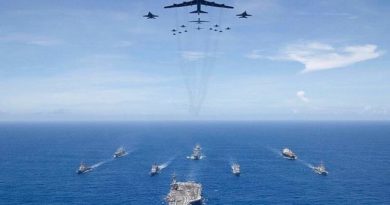Innovation Pavilion at Navy House
The Indian Navy’s foray into indigenisation began over five decades ago with the construction of small patrol boats in the country. The Navy’s saga of self-reliance inched up by a notch in the late-60s with the construction of Leander Class frigates at Mazagon Dock and Shipbuilders Ltd. The indigenous shipbuilding programme that began with building Frigate size ships to foreign design has gradually matured into building Destroyers and Aircraft carriers to the Navy’s own design. Today, with over 40 ships and submarines under construction in Indian shipyards, both public and private, the Navy takes pride in building all its ships and submarines in India.
Each ship is a self-contained war fighting platform with a large number of systems and equipment performing different functions ranging from simple accommodation and living services to civic services like power and water generation and distribution and high-end weapons and sensors for warfare in all three dimensions, i.e, air, surface and sub-surface.
Unlike any other military platform, the number of equipment/ systems/ sub-systems/ fittings fitted on a ship/ submarine is very large and runs into a few hundreds. The Navy acquired ships from diverse sources during the initial decades and a few special purpose platforms in the recent past. Over the years, by nurturing the art of designing and integrating systems, the Navy could select the most advanced systems, and integrate them to get the best combat potential. While this gave a distinct edge in the combat potential, the Navy’s inventory became a complex mix of systems from different manufacturers. As many such systems are operated well beyond their usual service life, maintaining these systems at their best has always been a challenge. Obsolescence and lack of support from their Original Equipment Manufacturers (OEMs) makes things even more difficult.
A warship going out on deployment to high seas on a long mission also poses multiple challenges to the crew where a variety of situations throw unique challenges, which have to be managed at sea. Such situations groom naval personnel to think beyond the normal and innovate, to make Innovation a way of life in the Navy. Although many such innovations that make the ships systems to tick, engines to roar and weapons to fire with precision go unreported as a part and parcel of day-to-day activities, the Navy makes an effort to recognize them and appreciate.
Navy presents ‘CNS Rolling Trophy for Innovation’ to the selected innovations. The innovative methods adopted by units to overcome constraints and to improve efficiency at their work areas, are evaluated centrally at the Naval Headquarters in two categories namely “Operational Units” and “Shore Establishments”. As a mark of recognition, the shortlisted initiatives will be showcased to the invited dignitaries, on the Navy Day.
As a run up to the Navy Day 2017, twenty innovations have been shortlisted from those submitted by units and establishments across the Navy for central evaluation. The innovations range from innovative repairs to complex system modules to development of new techniques that would save money, time and manpower. The innovations by Indian Naval Ships Kuthar and Vikramaditya have been selected as Winner and Runner-up respectively in Operational Units category and Weapons Electronic Systems Engineering Establishment (WESEE) and Naval Aircraft Yard, Kochi as Winner and Runner-up respectively in Shore Establishments category.
These innovations along with a few more selected innovations will be displayed at the ‘Innovation Pavilion’, on 04-05 December 2017, at Navy House, New Delhi.




